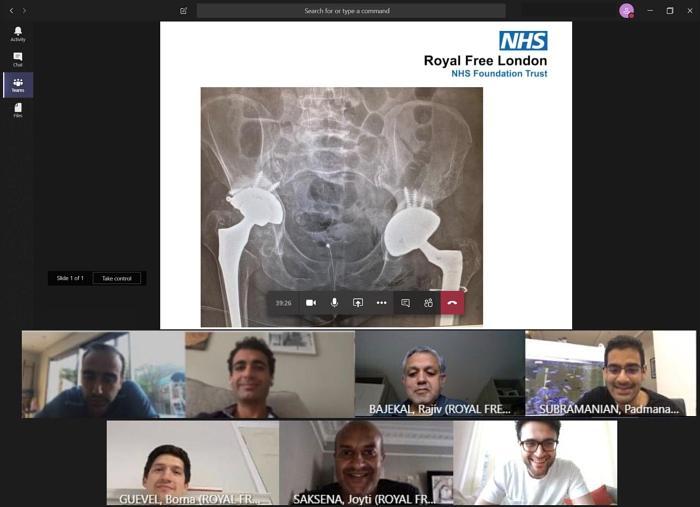‘Distant Learning’: A Glimpse into the Future and Beyond?
By Ossama Al-Obaedi and Paddy Subramanian
Royal Free NHS Trust, London
Corresponding email: [email protected].
Published 13 April 2020
On March 11th 2020, the World Health Organisation declared COVID-19 as a pandemic. As social distancing measures came into play, physical attendance at trauma meetings and interaction with colleagues was permitted only when absolutely necessary to minimise exposure and spread of the contagion.
This crisis has had a major global impact through all aspects and walks of life. In the UK, we are in the midst of this current storm and we look to how we can try to maintain morale and education for our trainees (even those that have been re-deployed to other specialities). It has forced us to find novel ways to continue to engage and educate our trainees and we describe the use of widely available and free to use technology as part of our armamentarium against the ‘invisible enemy’.
A ‘virtual classroom’ focussing on arthroplasty was created using Microsoft Teams. A consultant specialising in arthroplasty volunteered as the principal teacher. The FRCS Syllabus for hip and knee arthroplasty was used to guide the topics to cover. This platform was used to co-ordinate journals, book chapters and online assignments of key reading.

A virtual conference is also being hosted on a regular basis using the teleconferencing capability on Microsoft Teams. During this virtual gathering, the trainees are engaged in discussions on the assigned topics and are able to consolidate their learning. Additionally, viva practice on the topics in focus are facilitated by the principal teacher.
This technology is also becoming more widespread across departments and regular departmental meetings with COVID-19 updates across the different sites of the trust are being run on platforms including Zoom (Zoom Video Communications Inc). This has helped bring us all together and stay in touch with the regular communications.
A small but perhaps not insignificant silver lining to this cloud may be that the role of this technology will be expanded to enhance world class training, promote and facilitate virtual clinics for our patients. This type of video-conferencing technology including software applications such as Zoom (Zoom Video Communications Inc, San Jose, USA), Clinic.co (Clinic.co, London, UK), and Microsoft Teams (Microsoft, Redmond, USA) is likely be a more common occurrence in the work place setting and this will not just be limited to healthcare.
Employers will see the potential benefits of reduced office space, greater retention of employees, facilitating part time flexible working patterns and on an environmental scale, a significant impact on emissions resulting from a reduction in global commuting.
One thing however is clear, the landscape post COVID-19 will be quite different and offers the NHS the potential for a fresh start, paving the way for newer technologies and pathways to be integrated for improved patient care.
